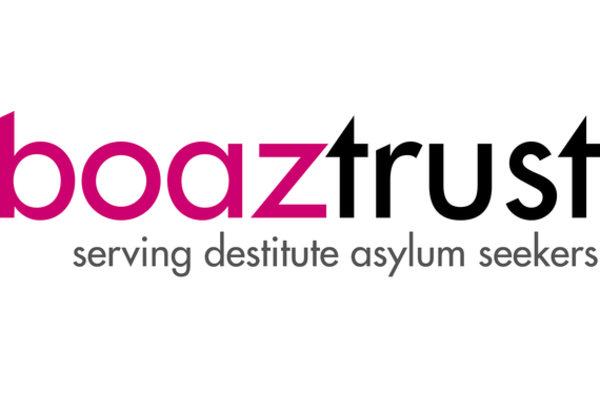The recent government proposals to introduce a new immigration system attempting to criminalise people seeking sanctuary who do not arrive in the UK via an official resettlement route are inhumane and unworkable. Those of us working in the asylum sector have witnessed a deteriorating landscape over the years, coupled with the slow erosion of rights for people forced to flee their homes and seek safety in another country. Yet even we were shocked by the tone and scope of the proposals recently announced.
It is first worth remembering – especially because the Government won’t remind you – that the majority of people forced to seek asylum do so in a country neighbouring their own. Despite the rhetoric and misinformation that abounds, 86% of the world’s refugee population are hosted by developing countries. Turkey, Colombia, Pakistan, Uganda and Germany host 39% of the world’s refugee population between them (UNHCR). The UK accepts less than 0.5% of the world’s total refugee population.
There is a growing trend in our society - and in other societies alike - to distort reality, manipulate language, and present false information as fact. We are repeatedly told that the UK is being overwhelmed by the constant arrival of people seeking asylum. In reality, the number of people seeking sanctuary in the UK fell by 18% in 2020. The perpetuation of untruths stirs and stokes hatred, diverting attention away from the responsibilities of those in political office and scapegoating those most marginalised by society.
When the Government announced plans to create a new immigration system, it did so by telling the British public that people who enter the country through ‘illegal means’ will not have their asylum cases considered on merit and instead can expect to be deported at any time. It is not illegal to enter another country to claim asylum. That right is enshrined in the 1951 Refugee Convention (and the Immigration and Asylum Act 1999 protects against the prosecution of refugees entering the UK). That we saw only some mainstream broadcasters and journalists last week challenge the claim that seeking asylum in this way is illegal, demonstrates the problem of misinformation embedded in discourse as fact.
Announcing the Government’s new plan, the Home Secretary spoke of proposals to prioritise and protect vulnerable women and children in refugee camps. If this was the case, we could have expected a far different set of proposals for asylum reform. As it is, the attempt to criminalise people entering the UK by boat or other means will not deter people from seeking sanctuary in the UK, but instead push people – including vulnerable women and children – further into the hands of smugglers. The reality is that desperate people are forced to make desperate decisions.
There are very few established ‘safe and legal’ UK resettlement programmes. The Syrian Vulnerable Persons Resettlement Scheme has ended and the Government’s proposals do not indicate the implementation of any immediate replacement schemes. If the Government truly cares about vulnerable children, surely it would not have voted down the Dubs Amendment, which would have allowed unaccompanied sanctuary seeking children in Europe to come to the UK to be reunited with relatives. And what of the asylum seeking children already in the UK? A recent report from Greater Manchester Immigration Aid Unit has shown that children are ‘falling apart’ because of delays by the Home Office in accessing their asylum claims. GMIAU reports of children who have turned to self-harm, are experiencing persistent insomnia, hair loss and hopelessness about the future because of the Home Office’s inaction.
Likewise, if the Government truly cares about vulnerable women, it would surely not have detained hundreds of them in Yarl’s Wood Immigration Removal Centre in Bedfordshire - 77-85% of whom were found to be survivors of abuse, according to research carried out by Women for Refugee Women.
The facts speak for themselves. For those of us working and campaigning in this sector, what we see is a grim and ever more hostile reality for people seeking asylum – and a deteriorating landscape for anybody, seemingly, who this country considers to be other than British. Clients of ours have waited months (up to a year, even) to access copies of their asylum papers from the Home Office, preventing them from being able to progress their legal cases. We have witnessed a decline in clients’ mental health, leading to serious conditions such as post-traumatic stress, depression and anxiety. Women and men who we support still bear the scars of being detained in, and by, this country.
Across the UK the picture is equally grim. Unsanitary and overcrowded army barracks used to house people, hotels operated by private contractors imposing curfews and serving substandard food, and cases of government contracted housing infested with rats and damp. The UK is one of the richest countries in the world, but tells its people that there is not enough to go around. The reality is that there is enough, but for the unequal distribution of resources and wealth.
The former director of the Institute of Race Relations, Ambalavaner Sivanandan, speaking about post-colonial migration, once said: “We are here because you were there.” Knowledge of UK history and our footprint in the world is severely lacking. We too often refuse to face hard truths about our history, and are reluctant to acknowledge or take responsibility for the roles that we have played in destabilising countries and regions. The UK talks of its proud history of offering sanctuary to refugees, yet these proposals do not communicate welcome or refuge. They fail to convince of their humanity or heart. They lack interest in allowing people to be seen. They represent a moral failure and turn away from suffering. Join us to take action and speak truth to power.





